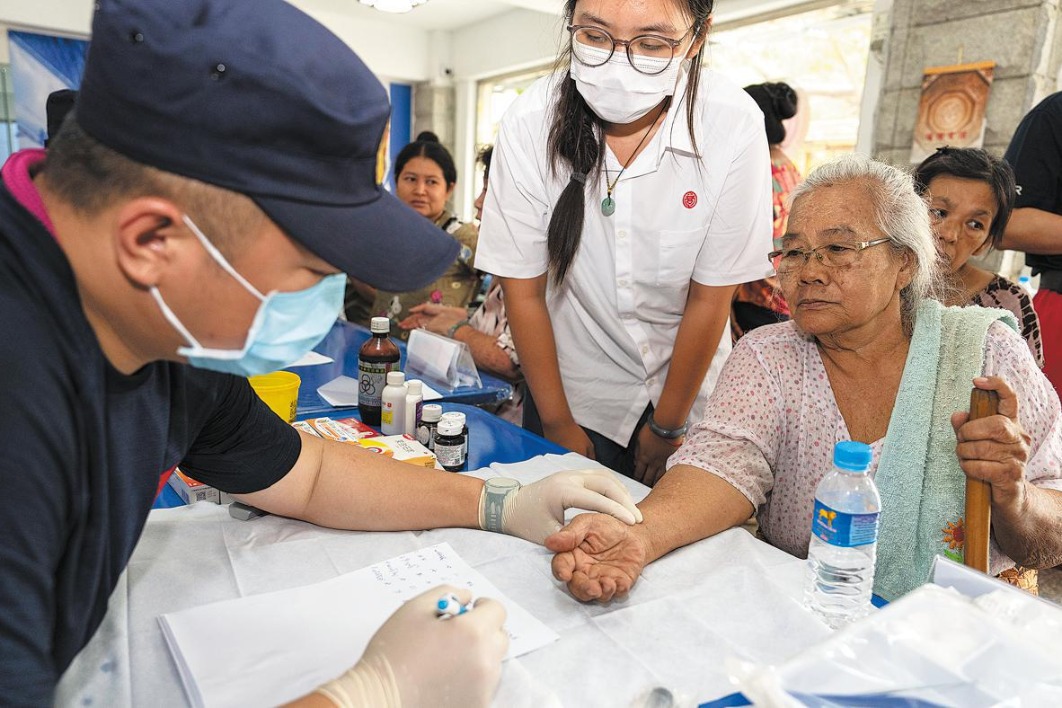US director expands youths' connection to Shakespeare
By Liu Hui | chinadaily.com.cn | Updated: 2017-12-06 12:13
"One man, but many parts" could be one of the most fulfilling, yet challenging, roles that Joseph Graves has played in past years.

Having never missed a chance to showcase his affection for the works of William Shakespeare, the 62-year-old US theater director and actor also managed to expand the contact between Chinese youngsters and the UK's greatest cultural icon.
Graves said he felt blessed to spend the majority of his career in what he described as his "second native place", Beijing, where he met Shakespearean scholar and enthusiast Cheng Zhaoxiang, the then-dean of the Foreign Languages School at Peking University, in 2002.
Cheng knew Shakespeare's plays well, but he knew nothing about acting and directing, according to Graves, who was later offered a position to teach Shakespeare to Cheng's students. Graves agreed that fusing the classical elements of drama, movement and rhythm could bring Chinese students a step closer to understanding Shakespeare.
Graves said he was stunned when thousands of student actors volunteered to join his production of The Tempest. "Most of them never learned how to act, let alone be involved in a non-Chinese play," Graves said. Indeed, Chinese students' passion and intelligence helped remind Graves of his own experience when he found himself in the plays of his lifelong touchstone, Shakespeare, under the influence of his first teacher, Clive T. Revel.
Graves embarked on his journey in acting, directing and writing for the theater and the screen in his teens, mainly in the US and the UK, but also in France, Germany, Italy and the Middle East. Graves is still at it and has lived through over half a century of theater history.
In 2004, Graves and Cheng formed the Institute of World Theatre and Film at Peking University, with Graves as the artistic director.
"For most Chinese students, English could be their second language, while Shakespearean English is really a third one," Graves said. Despite years of foreign language study, Graves said their pronunciation and wording of Shakespeare remain a problem when acting. He encouraged students and more others to embrace the characters in the plays both linguistically and emotionally.
In late November at the Science, Education, Life and Future Forum, Graves told China Daily website that theater arts education in China lags far behind that in western countries as in the latter, people are exposed to the performing arts when they are young.
Shakespeare has been the catalyst for many of Graves' new productions, but for him, the works of Chinese dramatists are equally important.
During his years in China, Graves has produced and directed more than 70 plays in both Chinese and English, including most of Shakespeare's, some other classical western plays and a few eastern plays and operas.
He shared his list of favorites by adding more traditional Chinese elements, like the Chinese folk tale of Madame White Snake.
Please contact the writer at liuhui1@chinadaily.com.cn
























